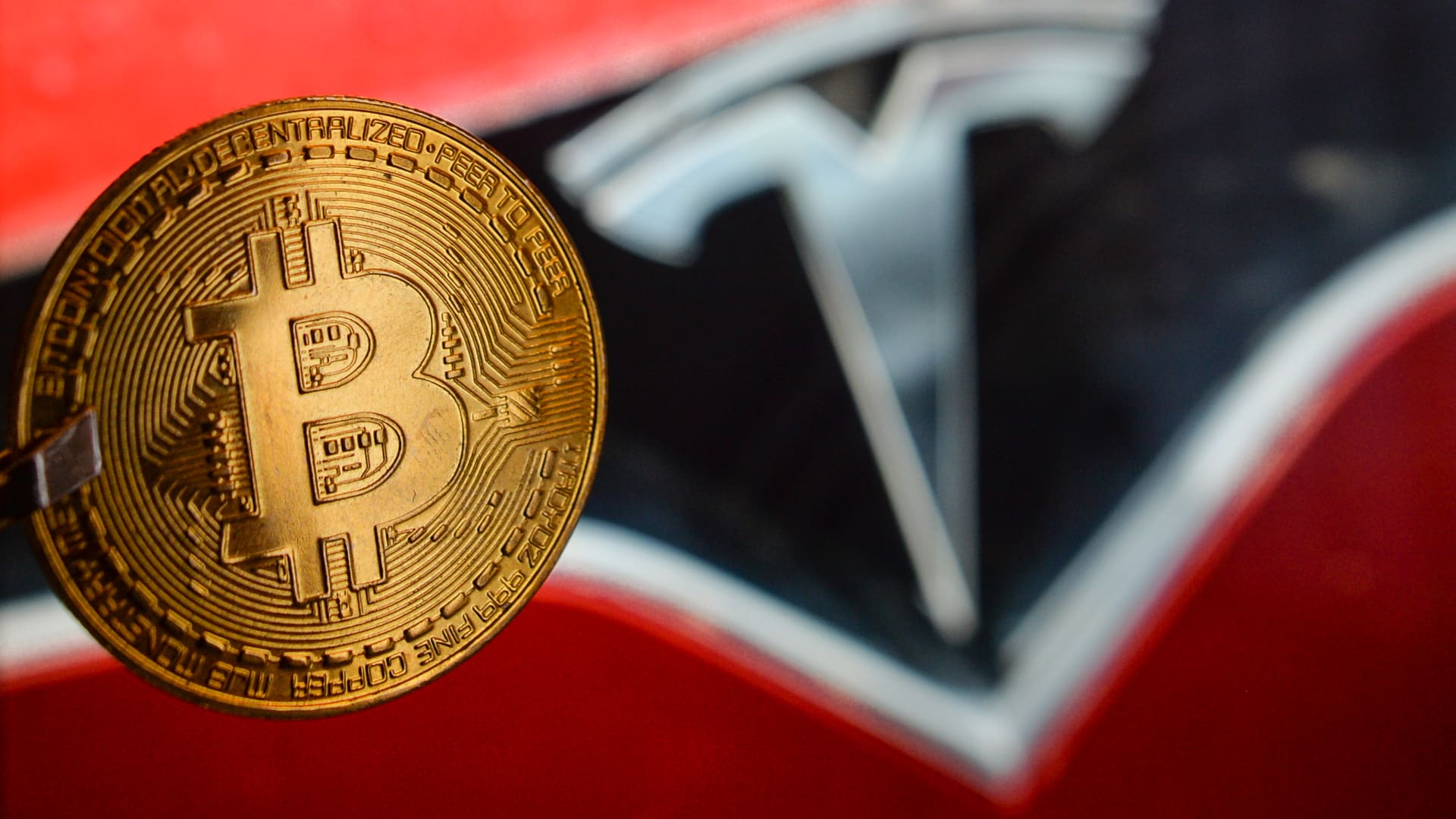
Tesla, led by Elon Musk, confirmed that it purchased about $ 1.5 billion in bitcoin in January and expects to start accepting it as a payment in the future.
Artur Widak | NurPhoto | Getty Images
Early last year, Tesla invested $1.5 billion in bitcoin, banking on what the electric car maker called the digital currency’s “long-term potential.” The company has already sold three-quarters of its holdings.
“As of the end of Q2, we have converted approximately 75% of our Bitcoin purchases into fiat currency,” Tesla said in its second-quarter earnings statement on Wednesday. The company said those sales added $936 million in cash to its balance sheet.
It’s a rapid retreat for Tesla and CEO Elon Musk, who was a heavy crypto booster during last year’s runup, frequently tweeting about various digital currencies. The price of bitcoin has lost half its value in the past four months during what’s been dubbed a “crypto winter.”
For Tesla, the fair market value of its bitcoin holdings reached $2.48 billion in the first quarter of 2021 and ended the year at about $2 billion. The company didn’t say at what price it sold or provide the size of its impairment, but bitcoin started the second quarter at close to $46,000 and ended below $19,000.
Analyst Brian Johnson at Barclays estimated earlier this week that Tesla would see a $460 million bitcoin-related impairment given the selloff.
“The reason we sold a bunch of our bitcoin holdings was that we were uncertain as to when the Covid lockdowns in China would alleviate so it was important for us to maximize our cash position,” Musk said in an earnings call on Wednesday. “This should be not taken as some verdict on bitcoin,” he said, adding that Tesla is open to increasing its crypto holdings in the future
However, when asked about bitcoin’s potential as an inflationary hedge on the earnings call, Musk said that Tesla’s main goal is to accelerate the transition to sustainable energy, and called bitcoin “a sideshow to a sideshow.”
In the first quarter of 2021, when Tesla went big on bitcoin, the company said the decision was a matter of becoming more flexible, diversifying and picking up returns from its cash holdings. The company quickly sold 10% as the currency ran up, contributing $101 million of profit in the period.
Kirkhorn said at the time that the company’s intent was “to hold what we have long term and continue to accumulate Bitcoin from transactions from our customers as they purchase vehicles.”
In May of last year, Musk said Tesla would stop accepting bitcoin for car purchases because of the environmental impact of mining, but he added that the company “will not be selling any bitcoin.” A week later, he tweeted emojis indicating the company has “diamond hands” when it comes to bitcoin investing, and he credited “our master of coin.”
A lot can change in a year.
— CNBC’s Lora Kolodny contributed to this report.
WATCH: We’re more concerned about Tesla’s quarterly results, this time, says CFRA’s Garrett Nelson